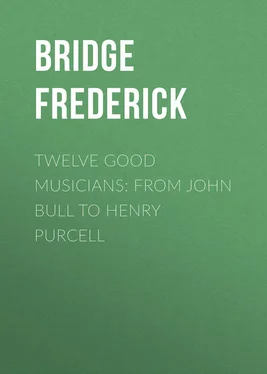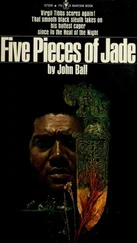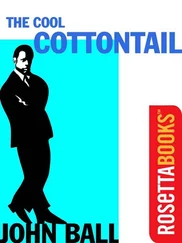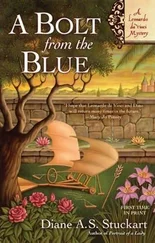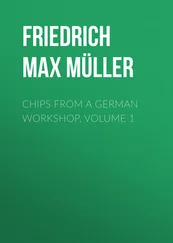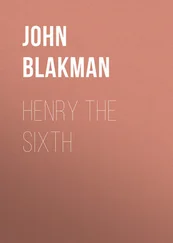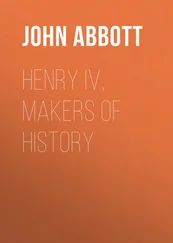Frederick Bridge - Twelve Good Musicians - From John Bull to Henry Purcell
Здесь есть возможность читать онлайн «Frederick Bridge - Twelve Good Musicians - From John Bull to Henry Purcell» — ознакомительный отрывок электронной книги совершенно бесплатно, а после прочтения отрывка купить полную версию. В некоторых случаях можно слушать аудио, скачать через торрент в формате fb2 и присутствует краткое содержание. Жанр: foreign_language, foreign_antique, foreign_prose, на английском языке. Описание произведения, (предисловие) а так же отзывы посетителей доступны на портале библиотеки ЛибКат.
- Название:Twelve Good Musicians: From John Bull to Henry Purcell
- Автор:
- Жанр:
- Год:неизвестен
- ISBN:нет данных
- Рейтинг книги:3 / 5. Голосов: 1
-
Избранное:Добавить в избранное
- Отзывы:
-
Ваша оценка:
- 60
- 1
- 2
- 3
- 4
- 5
Twelve Good Musicians: From John Bull to Henry Purcell: краткое содержание, описание и аннотация
Предлагаем к чтению аннотацию, описание, краткое содержание или предисловие (зависит от того, что написал сам автор книги «Twelve Good Musicians: From John Bull to Henry Purcell»). Если вы не нашли необходимую информацию о книге — напишите в комментариях, мы постараемся отыскать её.
Twelve Good Musicians: From John Bull to Henry Purcell — читать онлайн ознакомительный отрывок
Ниже представлен текст книги, разбитый по страницам. Система сохранения места последней прочитанной страницы, позволяет с удобством читать онлайн бесплатно книгу «Twelve Good Musicians: From John Bull to Henry Purcell», без необходимости каждый раз заново искать на чём Вы остановились. Поставьте закладку, и сможете в любой момент перейти на страницу, на которой закончили чтение.
Интервал:
Закладка:
With respect to his Instrumental writing, in addition to many examples for the Virginals, he wrote for combined instruments, as will be seen later. Much of his Virginal-music is contained in the Fitzwilliam Collection , and in Will Forster's Virginal Book in Buckingham Palace. For combined instruments may be mentioned the seven Fantasias, and there is also a collection called First Book of Consort Lessons for Six Instruments, Lute, Pandora, Cittern, Bass Viol, Flute and Treble Viol . Writing on this collection Dr Burney does not take a very high estimate of its musical value: "they seem to have been intended for Civic Feasts" (he says), "and Master Morley, supposing perhaps that the harmony which was to be heard through the clattering of knives, forks, spoons, and plates, with the jingling of glasses and clamorous conversation of a City feast, need not be very accurate or refined, was not very nice in setting parts to these tunes, which are so far from correct that almost any one of the City Waits would have vamped as good an accompaniment on the spot."
I question if Dr Burney is justified in this scathing criticism. I do not suppose he ever heard them performed, for the good reason that there is no complete set of parts to be found, and there is no record of any such being in existence in his time. A few years ago I did my best to get these little "Band tunes" performed, but at first only the Viol and Flute parts could be found. Later on I was fortunate enough to discover a Cittern part in the Bodleian Library, and, later still, a part for the Pandora has been found in the Christ Church Library. We still want the parts for Lute and Bass Viol, but with these four we get a very good representation of the original, and at the Exhibition initiated by the Worshipful Company of Musicians we had one of these little tunes played by the six instruments, under the direction of the Rev. W. Galpin. We had to supply parts for Lute and Bass Viol, but as we had the original Harmony supplied by the Flute (i.e. a small Recorder), which was an inner part, and by the Cittern and Pandora – both of which played Chords – we could not go far wrong. The effect was both interesting and charming, and altogether discounted Burney's unreliable criticism. It would be a great delight to all lovers of this early music if the two missing parts could be found, but I fear we shall hunt in vain.
His Sacred works include two Services and an Anthem, which was published in Barnard's collection, and a setting of the Burial Service, which appears in Boyce's collection. There are also examples, in MS. amongst the Harleian MSS., in the Christ Church Library at Oxford, and the Fitzwilliam and Peterhouse Libraries at Cambridge. A curious thing, rather, in connection with his Sacred works is, that, unlike his secular compositions, none was published during his lifetime.
His style was not so broad as that of Tallis or so noble as that of Byrd, but he had a great influence upon the art. His own compositions include examples of his talent in many directions. As a theoretical writer he is really distinguished above his contemporaries, and contributed to the stores of Sacred, Secular, and Instrumental music, besides writing for the stage.
Morley's early death was a real loss to English music, and he was mourned by all his contemporaries. One of the most touching testimonies is a beautiful Lament for Six Voices by Thomas Weelkes, himself a distinguished composer, whom we shall consider later. The words are as follows:
A remembrance of my friend Mr. Thomas Morley.
Death hath deprived me of my dearest friend,
My dearest friend is dead and laid in grave,
In grave he rests until the world shall end,
The world shall end, as end must all things have.
All things must have an end that nature wrought
That nature wrought must unto dust be brought.
Another poetical testimony to Morley was written in his life-time, and may be given here. It is supposed to be by Michael Drayton:
Such was old Orpheus' cunning,
That senseless things drew near him;
And herds of beasts to hear him.
The stock, the stone, the ox, the ass came running.
Morley! but this enchanting
To thee, to be the music god, is wanting;
And yet thou needst not fear him.
Draw thou the shepherds still, and bonny lasses,
And envy him not stocks, stones, oxen, asses.
IV. THOMAS WEELKES
In the previous Lecture I have mentioned Thomas Weelkes, and now turn for a short space to this distinguished composer. As I have said before, I do not profess to include all the great English musicians of the 17th century in this short series of Lectures, and Weelkes is selected, not only as being greatly superior to many others, but because he has given us something original in the shape of combined Instrumental and Vocal work, in addition to his valuable contributions to the Madrigal School. Of this I must speak later. As a Madrigal-writer he is notable as one of the "glorious company" of contributors to The Triumphs of Oriana . Although little of his Church music is published, yet as Organist of Chichester Cathedral and, as a member of the Choir of the Chapel Royal, he was an experienced Church musician. He left many Anthems, which are preserved in MS. in various Libraries; and he contributed two pieces to Leighton's Teares and Lamentations of a Sorrowful Soul . In his Fancies for Strings he displays a very fertile imagination. I have had some of his Fancies performed at my various Lectures, and have found them remarkable for melodic interest and very advanced as regards Harmony. His instrumental writing is surprising; and, when one compares his Fancies with those by Orlando Gibbons, one is astonished at the novelty of his ideas. As will be seen later I shall have much to say in connection with Gibbons, Deering, and Purcell in regard to the Fancy. But I may as well at once explain that this was the form which was supreme in the early days of the 17th century as a vehicle for Instrumental writing. An enormous number of these compositions exist, and it was not until Purcell's time that the Fancy disappeared – being supplanted by the Sonatas for three strings and a Basso Continuo. It was a form which helped on the progress of writing for Instruments in a wonderful way. "Apt for Voices and Viols" was the usual title-page which composers loved. But, when the Fancy developed, the writing was far too elaborate to be "apt for voices," and so we get the independent instrumental Fancy. It was, as a rule, a work of some considerable length, and, while full of variety, it was lacking in any real development. The composer indulged his "Fancy," and wandered from point to point at his own sweet will.
It was with the Fancy that Weelkes made an early experiment of adding a vocal part quite independent of the strings. And he took for his vocal part the popular series of "Cryes" which were then common to the streets of London. He did not, as has so often been wrongly stated, "set the Cryes of London to music," but he took the words and the music of these old and very interesting things and added the vocal part to what was a real Fancy for strings. It is said Morley did the same thing, but I have, so far, failed to find any example of it. Ravenscroft took many of these same old Cryes and worked them up as Rounds, and Campion introduced Cherry Ripe into a charming song "There is a Garden in her face" in 1617; but the Humorous Fancy by Weelkes is, so far as I can see at present, the earliest of this kind of work. Later, in connection with Gibbons and Deering, I shall have much to say on this subject, as these composers also wrote Humorous Fancies , the vocal parts being the same old Cryes of London but treated in a more elaborate manner.
Читать дальшеИнтервал:
Закладка:
Похожие книги на «Twelve Good Musicians: From John Bull to Henry Purcell»
Представляем Вашему вниманию похожие книги на «Twelve Good Musicians: From John Bull to Henry Purcell» списком для выбора. Мы отобрали схожую по названию и смыслу литературу в надежде предоставить читателям больше вариантов отыскать новые, интересные, ещё непрочитанные произведения.
Обсуждение, отзывы о книге «Twelve Good Musicians: From John Bull to Henry Purcell» и просто собственные мнения читателей. Оставьте ваши комментарии, напишите, что Вы думаете о произведении, его смысле или главных героях. Укажите что конкретно понравилось, а что нет, и почему Вы так считаете.
